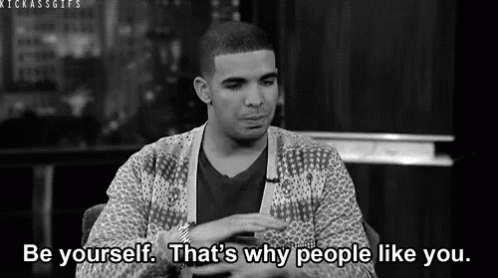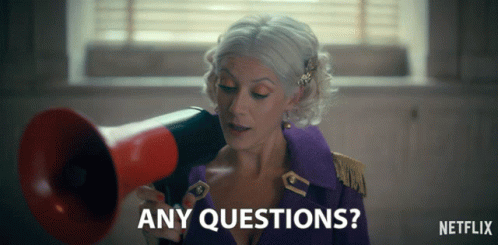How to Ace: Residency Interview Season

The residency interview process is the only stressful part about the fourth year of medical school. It's stressful to wait for interviews. It's stressful to participate in them. And it's stressful knowing a computerized algorithm will decide your fate after they're over. While I do think the match process should ultimately change, you as an applicant can control parts of the interview cycle. These include the weeks leading up to interviews and interviews themselves.
While I'm not an interview guru of any sort, I am fresh out of last year's cycle and had some thoughts on the process. Listed blow are some tips to make this season go smooth, from obtaining interviews to the day itself.
Disclaimer: I am a current internal medicine resident that was raised in Michigan, attended medical school here, and interviewed at programs in the Midwest with a focus in my home state. There are subtle cultural program differences based on geographic regions, but I think most of the tips will still apply. Good luck and enjoy.
1. Not getting your dream interviews? Email the programs a LOI.

Last year, I applied to three programs in the Midwest that were reaches. Four weeks after applications had opened, I racked up some interviews but still didn't hear back from my top three. I frantically searched for the program directors emails and sent them a letter of interest (LOI). Additionally, I CC'd the program coordinators. To my surprise, I got interview invites from two out of three programs. One of them came the next day and the other within the week.
Shockingly, program directors seemed to be reading LOI emails because I don't think my invites were a coincidence. I think the best time to send LOI's are around four weeks after applications open. At this time, the first waves of interviews have been sent out to the cream of the crop. If the program is within your reach, this is your time to strike. Program coordinator emails are usually out there and you should send an LOI to them regardless. However, finding the program director's email is key. I think it's absolutely reasonable to exhaust your Google detective skills, find and email the program director. Now, I wouldn't email current residents (unless you know them personally) asking for the directors email. If you cannot find it, just send your LOI to the coordinator. However, if you find it, I would send one to the director with a CC to the coordinator. If you need help with how a LOI should look, reach out to me.
2. Use your connections.

Up until recently, I had this weird reservation about achieving my goals through merit and not having to use people or connections. Admittedly, it was a stupid reservation. However, I think other medical students feel similarly, because most of our lives, our test scores and CV's have gotten us to the next step. Residency is a different ballgame and you can be at an advantage if you use your connections properly.
Depending on the program, residents do have some pull in regards to who get's an interview. They can definitely contribute to the buzz surrounding an applicant. For example, weeks before applications opened, my program coordinator asked us if we wanted to recommend anyone for the program. I sent her a few of my friends' AAMC ID's and thus far, they've all gotten interviews. If you went to medical school with someone attending your goal program, reach out to them. Even if you barely talked to them. It can't hurt you. If a resident who went to medical school with you gets rubbed the wrong way from a text/email you sent, they're not going to sabotage your chances to get interviewed. First off that's just petty but secondly, they don't have time for that.
However, if you are going to reach out to the resident you used to play basketball with at the rec center back in the day, be straight up. Don't ask them how they're doing or if they want to hang. That's fake. Acknowledge that it's been a while but you were interested in their program. Sure, it may be weird and if you barely know them and chances are nothing will result from it. But it's worth a shot. The medical community is tight knit and if you're applying in state, names and relationships don't go far. If they remember you as a decent human being, then they might vouch for you.
Additionally, if you have those squaggly connections, use them too. Speaking to more of my South Asian applicants here but if you know that aunty or uncle in the community that knows that individual on faculty, don't be afraid to ask for that favor. Anything helps during this time and connections work more than you would think.
3. Interview day: Be your damn self.

You've probably heard this tip several times in a less explicit manner. But I can't re-iterate this enough. Unless you have an atrocious personality, you must show the interviewees who you are. Yes, it's a professional setting, but when it comes to the residency interview, the vibe is collegial and friendly. You'll realize that most of your interviewers are relaxed and they want you to mirror their energy. Laugh when appropriate, tell personal stories, and ask questions (more on this later). Most of the time, when interviewers are asking you a question, they're expecting a personal response with an element of story. "Why did you choose internal medicine?" Express your narrative. "I saw that you participated in X during medical school, can you tell me more?" Get personal about it. The program wants to know who you are, so show them.
4. Ask whatever you want (within reason)

Something I struggled with during interviews was preparing questions for each program. You always have your list of questions you can pull from Google but a lot of them are generic. I spoke to my co-residents about this topic and interestingly, we all took different approaches. Specifically we reflected on our interview with the program we matched at. I usually kept my questions broad and asked more vibey inquiries to staff, such as "How have you liked the culture and working here?". That's because feelings and sentiment are important to me. My co-intern, on the other hand, asked about wellness and what the program did to address resident burn out. That's because that topic was important to him. Another co-intern asked about research mentorship and opportunities the program offered. Because well, that was important to her. And guess what? We all ended up at the same residency program.
The moral of the story is you should ask the program whatever is important you. As long as you ask reasonable questions, it's hard to go wrong here. However, if you're stuck, I always think it's a good idea to ask specific questions about the curriculum and other parts of the presentation. It shows the interviewers you were paying attention during their presentation and are genuinely interested in the program. But be careful not to ask a question that was already answered in the their PowerPoints because that will surely backfire.
5. Have fun.

I remember during my medical school interviews, I ate decent food. I drove to new places, observed the personalities of staff, and met new potential medical students. We conversed, laughed, and even added each other on social media. Sure, we never kept up but we now knew another person chasing the doctor dream. These moments were fun though, reducing the nervousness of an innately stressful day.
With virtual interviews, it's difficult to re-create any of what I mentioned. It kind of sucks but it's also nice to not worry about travel and expenses. Pros and cons aside, interviewing for residency is a unique experience. It's the first time you're interviewing to be a physician. You'll finally be responsible for patients and placing orders. You'll finally get paid (increases to come). You should be proud of yourself and enjoy the moment. Now, I'm not saying be the person that has their video and microphone unmuted in the waiting room. But please, go to the virtual happy hour (I know they get redundant), enjoy the people, and learn about each program to see if you'll fit. Bask in the moment and be confident about your accomplishments. You've made it this far and I promise, it will only get better from here.

